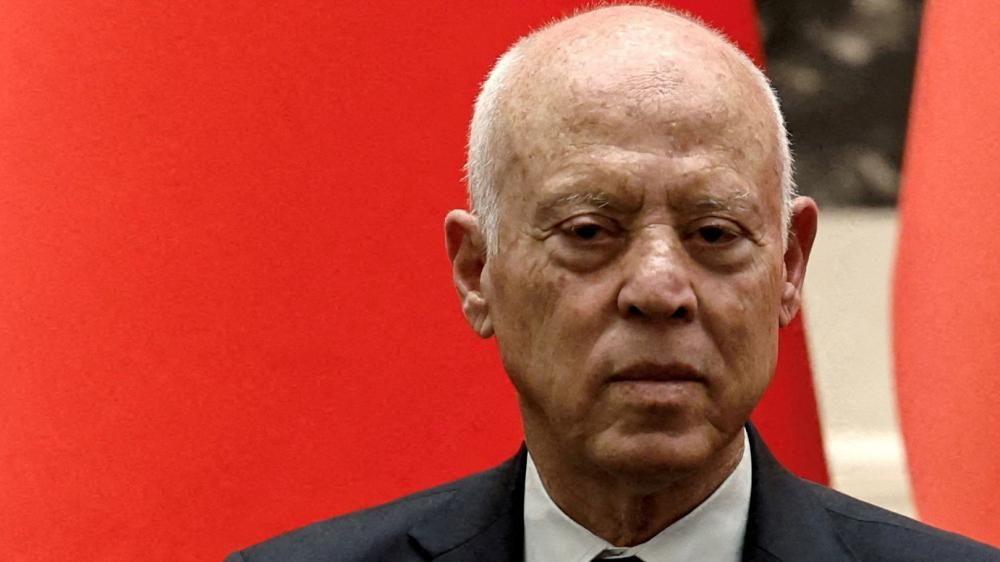In a contentious electoral environment critiqued by various rights groups, Tunisian President Kais Saied has secured a second term, garnering over 90% of the vote, according to the electoral commission. This election, held on a Sunday, featured only two challengers out of a pool of more than a dozen registered candidates, highlighting a notable restriction on the electoral process. Only 29% of over nine million registered voters participated in the election, indicating widespread apathy or dissatisfaction with the political options available. Among Saied’s challengers, businessman Ayachi Zammel managed to attain just 7% of the vote, despite facing a 12-year prison sentence for document falsification imposed only days before the election. The lack of genuine competition and robust electoral practices raised significant questions about the legitimacy of the poll.
The political climate leading to this election was marked by a striking absence of campaign rallies, public debates, and independent campaign materials, with the majority of street posters visibly supportive of President Saied. In a pre-election climate charged with cynicism regarding the electoral process, five political parties publicly called for a boycott of the elections, suggesting a prevailing belief that the elections would not be conducted fairly. Tunisia, once a symbol of pro-democracy movements in the Arab world following the ousting of long-standing autocrat Zine El Abidine Ben Ali in early 2011, has witnessed a gradual erosion of democratic principles under Saied’s leadership. Initially elected amid a wave of optimism in 2019, Saied’s subsequent actions have led to a considerable consolidation of power, with the suspension of parliament and the rewriting of the constitution being key steps in this centralization.
As the electoral commission announced preliminary results, it was revealed that Saied received 2,438,954 votes, reaffirming his dominant position in Tunisian politics. Zouhair Maghzaou, a former lawmaker and the third candidate in the presidential race, managed to capture nearly 2% of the vote. The final results of the election are anticipated to be released in the coming month, with the current results already painting a picture of an unchallenged political landscape favoring the incumbent. The recent election marked Tunisia’s third presidential election since the ousting of Ben Ali, whose 23-year reign had been characterized by repression and autocracy until massive protests led to his removal in 2011. His eventual death in Saudi Arabia in 2019 marked the end of a significant chapter in Tunisian history.
Despite the overwhelming electoral victory, there are urgent concerns regarding the decline of fundamental rights and freedoms under Saied’s administration as reported by prominent human rights organizations like Amnesty International. This decline has been accompanied by a rising tide of public discontent about what many perceive as Saied’s authoritarian governance. The political crackdown evident through the arrests of dissidents and suppression of rival voices underscores a landscape where political opposition is met with hostility and repression. Human rights advocates have urged national and international actors to closely monitor these developments and hold the regime accountable for its actions against dissent.
In response to critics, President Saied has framed his governance as a necessary battle against a “corrupt elite” and “traitors,” maintaining that his measures are vital for the nation’s future. This rhetoric resonates with a section of the population that might feel disillusioned with the political status quo and is seeking stability following years of political volatility. However, many observers argue that this narrative serves to justify increasingly authoritarian measures that threaten Tunisia’s democratic heritage. The evolution of Saied’s policies reflects a broader trend in which leaders, once seen as reformists, morph into authoritarian figures when faced with political opposition and societal unrest.
As Tunisia moves forward with its political trajectory, the ramifications of Saied’s victory and governance decisions remain a focal point of discussion within and outside the country. The critical question looms over Tunisia’s ability to retain its democratic aspirations amidst rising authoritarian tendencies. In light of the protests that once sparked a regional movement for democracy over a decade ago, there is a palpable urgency among citizens, political analysts, and human rights advocates to ensure that Tunisia does not regress into despair following a decade marked by struggle and hope for genuine democratic governance. The international community is watching closely, aware that Tunisia’s potential to set a precedent for democratic resilience in the Arab world hangs in a precarious balance given the current political climate.

